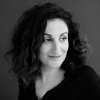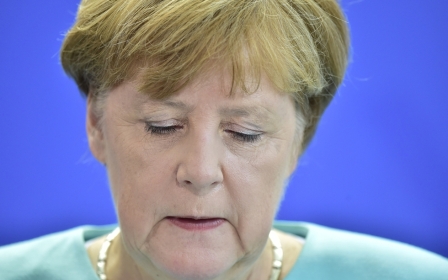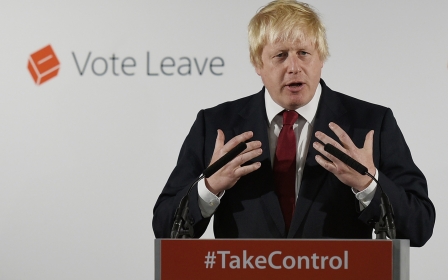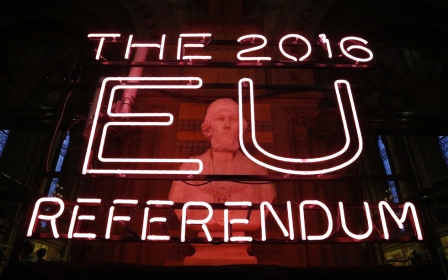Will the language of Leave turn into another kicking for minorities?
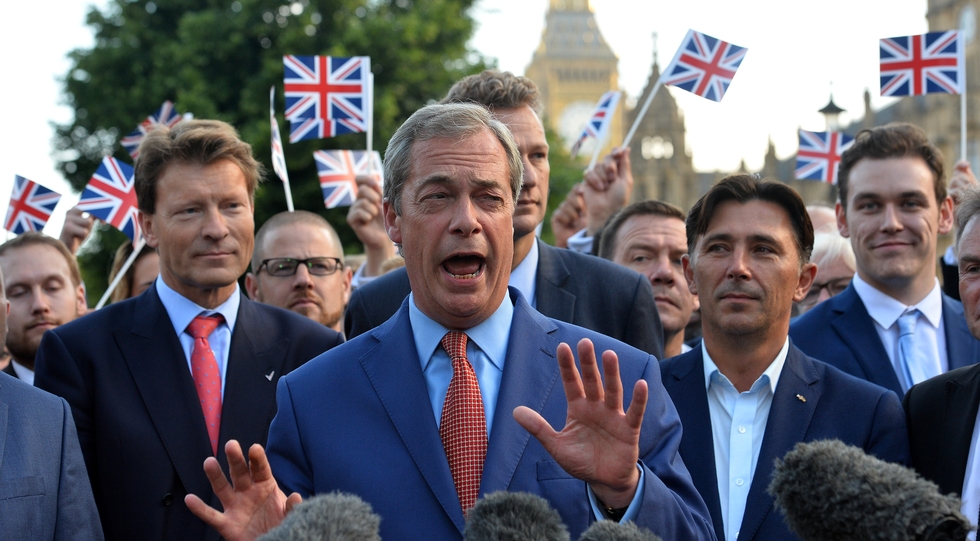
The result on Friday morning felt like a kick in the stomach, and it felt personal. I’m not interested in banging on about my colour or "ethnicity," but this is how the Leave vote looks from where I'm standing.
I remember well the dark days of the '70s where I was the “coloured girl”. As for being an Arab, no one even knew what that was. In answer to being addressed as "paki" or "nigger" my father advised me with a swell of pride to reply: “You are not Nigerian, you are not Pakistani, you are Arab!” Thank God I never took his advice, which probably saved me another kicking in the school playground.
Those were the days, pre-Jamie Oliver, when people still ate boiled veg, shops shut on a Wednesday, and my pitta bread packed lunch was laughed at as “paki food”. When asked where I was from, I answered Jordan and was often met with a blank expression. “Georgia?” was often the bemused reply. I learned it was best to just smile and let them think they were right.
As I grew older I learnt about Palestine, where my father was from, and no longer just answered “Jordan” when asked about my “ethnic extraction”. Language had taken a strange turn. Only in my 30s did I brave the word “Arab” without epithets like “dirty” or “thieving” ringing in my ears from the words of my schoolteachers. Now I throw that identifying word almost as a challenge.
Over the years, I’ve seen politically correct language evolve, till everyone eats hummus and people show great interest in different cultures - even if it sometimes leans a little toward exoticism. People began to tell me how much they loved apricots or couscous, confusing Middle Eastern with Moroccan cuisine. I smiled and let them believe what they wished. At least they were getting closer.
By the time of New Labour, the red-faced racist, the mother who taught her daughter to call me a “nig-nog” in the reception playground, was hushed and squashed. A little more careful of her language, a few more laws to obey and no longer allowed to say it on the bus anymore, bureaucracy and political correctness were seemingly effective.
We reached the point where famously you weren’t allowed to sing Ba Ba Black Sheep anymore. The fear of the "other" was clearly still there, just sanitised by nervous do-gooders not wanting to offend. Sadly, all this bureaucracy and politeness was a flimsy management structure to keep down a force of hate that the opportunity of this referendum has given new life to.
But now the lid is coming off again, and it’s time to shake off the shackles, reclaim the language, wave the flag and shout out with freedom about “Great” Britain, still ruling the waves. The EU did not fix the racism of the past, or this country, but it helped to keep things in check and has fast become a symbol of the far right to “take back control”. Is this the first of many steps backwards – of language, of borders. Is race next?
Will we repeat history and be surprised? The rabid red-top tabloids have led the masses with fear. Is migration really the reason why there is a long queue at the doctors? Do we believe this extra money will go into the NHS? Do we trust the British – or should I say the English – not to take us from this genteel form of racism to something even more sinister, in which Poles and Syrians are to blame for all our austerity woes?
Sadly, I don’t trust the re-empowered right-wing nationalists and, yes, I want them reined in by the civilising forces of Europe. I want to be part of the bigger picture, full of diversity and not cornered towards an ethnically pure born and bred, best of British.
There are legitimate reasons to leave the EU – enforced austerity, lack of democracy - and clearly voting to leave is not racist, but right now it’s about fighting the seeds of fascism. To turn our back on the EU is to turn our back on the greatest peace process in history and to let the lid off the bubbling racism that never disappeared with the adoption of politically correct language.
On the way to school on result day, with a heavy heart and my six-year-old daughter’s hand in mine, I felt the need to explain to her what racism is. She listened, stopped, looked at me blankly and asked: “But why?” It made no sense to her at all. Unlike her, I understood full well by the age of six what racism was and I want no six year olds to know in their bones what the “darkie” kids of the 70s knew. Let’s not go back to meat, two veg and a dollop of hate.
- Tanushka Marah is a British-born Palestinian/Jordanian theatre director, actor and teacher. She was a winner of the Young Vic director awards in 2002. She has toured extensively in Europe and the Middle East.
The views expressed in this article belong to the author and do not necessarily reflect the editorial policy of Middle East Eye.
Image: Leader of the United Kingdom Independence Party (UKIP), Nigel Farage (C) speaks during a press conference near the Houses of Parliament in central London on June 24, 2016. (AFP)
New MEE newsletter: Jerusalem Dispatch
Sign up to get the latest insights and analysis on Israel-Palestine, alongside Turkey Unpacked and other MEE newsletters
Middle East Eye delivers independent and unrivalled coverage and analysis of the Middle East, North Africa and beyond. To learn more about republishing this content and the associated fees, please fill out this form. More about MEE can be found here.


